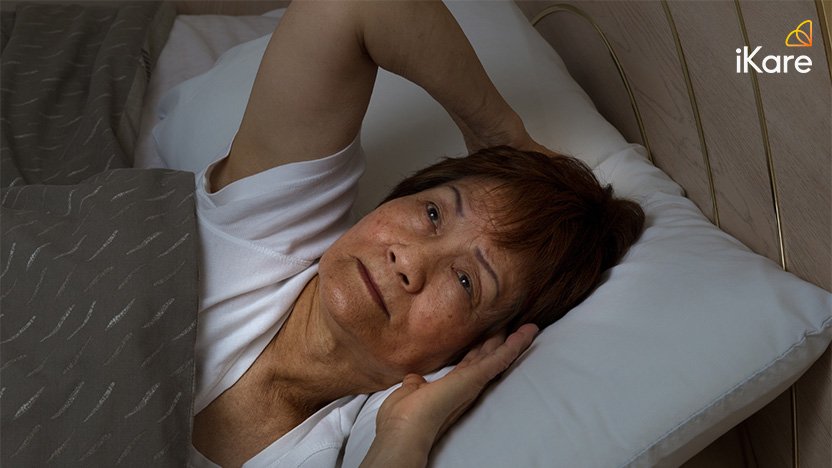
Problems in falling asleep are a common challenge faced by individuals living with dementia, causing heightened stress and fatigue for both the patient and the caregiver. Furthermore, inadequate sleep can worsen dementia symptoms, including heightened confusion and agitation, and detrimentally affect overall well-being. However, there are effective strategies to help alleviate these issues and improve the quality of sleep for dementia patients. Keep reading to learn essential tips for facilitating restorative sleep in individuals confronted by the challenges of dementia.
Establish a regular sleep schedule

Dementia often disrupts the internal body clock, leading to irregular sleep patterns. To help mitigate this issue, it’s crucial to establish a regular sleep schedule for your loved one.
Start by setting a fixed bedtime and wake-up time, and stick to this schedule as closely as possible. Make sure that meals and medication routines are also consistent, as these can impact the sleep-wake cycle. Avoid scheduling appointments or activities during the established sleep hours to ensure your loved one has ample opportunity for rest. Additionally, limit daytime naps, as excessive daytime sleep can make it harder for dementia patients to sleep at night. If naps are necessary, keep them short and earlier in the day.
Create a relaxing sleep setting
A peaceful sleep environment is vital for all, but it holds particular significance for dementia patients, who are prone to disorientation and agitation. Begin by investing in a comfortable mattress and pillows, ensuring there’s no discomfort caused by wrinkles or bunching of sheets and bedding. Additionally, take steps to create a serene atmosphere by minimising light and noise in the bedroom. This can be achieved by using blackout curtains to block out external light and considering the use of white noise machines to effectively drown out any disruptive sounds.
Safety is always a top priority, hence it’s essential to install bed rails or alarms to mitigate the risk of nighttime falls and accidents. Furthermore, maintaining well-lit and obstacle-free pathways to the bathroom is crucial for added safety. Lastly, adding familiar and comforting elements to the bedroom, such as family photos or beloved blankets, can significantly contribute to fostering a sense of security and reducing anxiety for dementia patients.
Encourage light activity during the day

When it comes to dementia care, it’s important to recognise that rigorous physical exercise may not always be feasible. However, integrating light daytime activities can still yield significant benefits, particularly in improving sleep patterns. One effective approach is to embark on short, leisurely walks with your loved one during daylight hours, preferably in natural sunlight, as this exposure plays a pivotal role in regulating the body’s internal clock.
In addition to outdoor walks, it’s valuable to encourage gentle stretching or seated exercises tailored to your loved one’s physical capabilities. These activities serve to alleviate restlessness and contribute to the promotion of a more restful and rejuvenating sleep, further enriching the overall dementia care experience.
Learn more: 3 Ways to Prevent Caregiver Burnout When Caring for a Dementia Patient | iKare
To sum it up, always keep in mind that each person is distinct. Therefore, it’s crucial to tailor these strategies to match your loved one’s particular needs and preferences. Patience and consistency remain crucial as you work through such sleep issues and improve the overall caregiving experience.
Looking to improve the sleep quality for a loved one with dementia? iKare provides a comprehensive selection of home care services in Singapore, including personalised dementia therapy aimed at enhancing their overall well-being. Contact us today to learn more.
